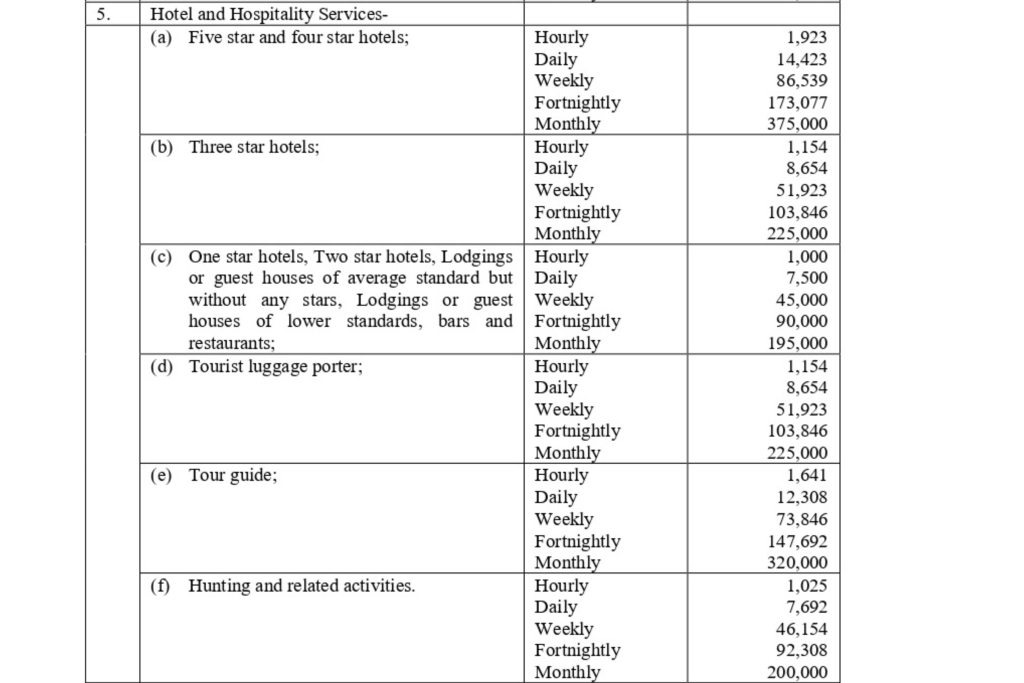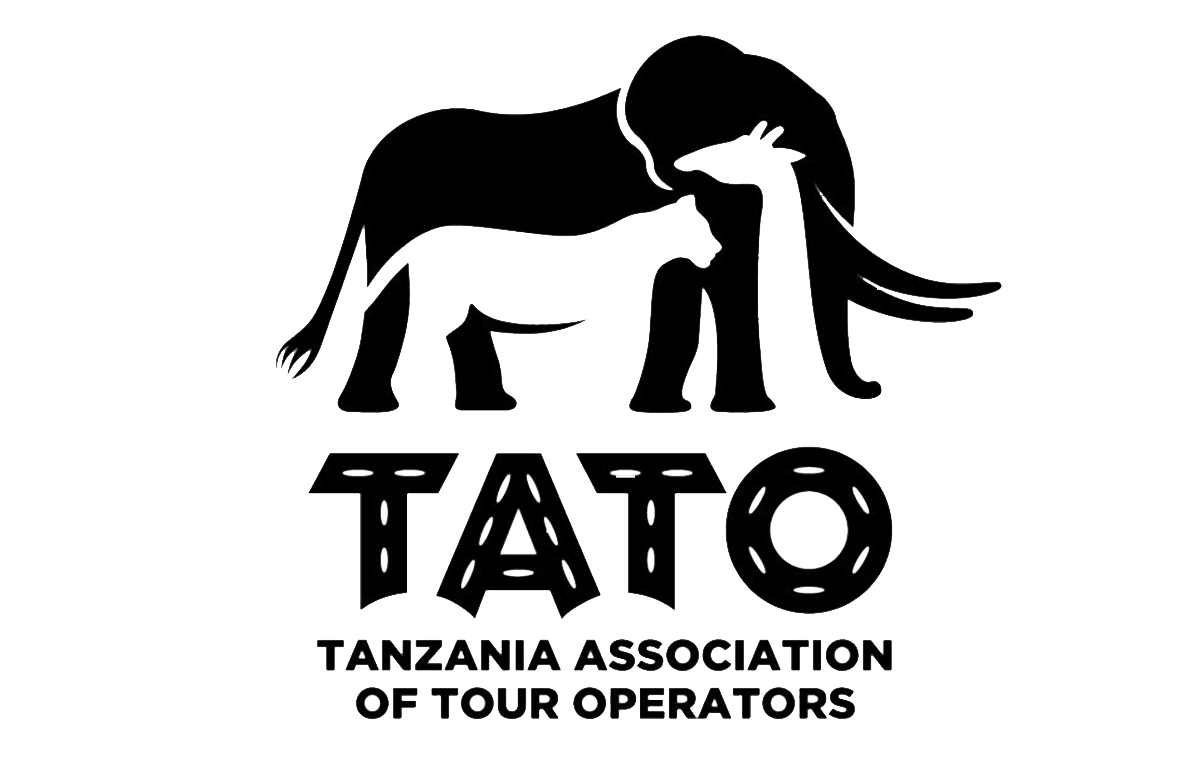Tanzania Introduces New Minimum Wage Order 2026: Implications for the Tourism and Accommodation Sector

The Government of the United Republic of Tanzania has announced the Labour Institutions (Minimum Wage for Private Sector) Order (Wage Order 2026), 2025 through Government Notice No. 605A, which will take effect from January 1, 2026. This landmark wage adjustment is set to impact various private sector industries — including hotel, hospitality, and tourism services — marking a pivotal moment for Tanzania’s labor market.
For the tourism and accommodation sector, which forms a cornerstone of Tanzania’s economy, this new regulation is a significant step towards ensuring fair compensation, improved labor standards, and a more sustainable working environment for thousands of employees across the country.
Understanding the New Wage Order 2026
Under the Wage Order 2026, the hospitality and tourism industry falls within the Hotel and Hospitality Services category. The new wage structure establishes the following minimum monthly wages:
- Five-star and four-star hotels – TZS 375,000 per month
- Three-star hotels – TZS 225,000 per month
- One- and two-star hotels, guesthouses, lodgings, bars, and restaurants – TZS 195,000 per month
- Tour guides – TZS 320,000 per month
- Tourist luggage porters – TZS 225,000 per month
This structure recognizes the diversity within the hospitality industry — from high-end establishments to small-scale operators — and provides a standardized foundation for improving employee welfare.
The Wage Order 2026 emphasizes that employers are free to pay above the minimum wage, encouraging businesses to compete on service quality, staff motivation, and job satisfaction.

TATO’s Role in Advocating for Fair Labor and Industry Sustainability
As the umbrella body for licensed tour operators, the Tanzania Association of Tour Operators (TATO) has long championed the balance between labor rights and operational sustainability within the tourism ecosystem.
TATO recognizes that fair wages and decent working conditions are central to building a motivated workforce — one capable of delivering world-class service that aligns with Tanzania’s reputation as Africa’s premier safari and hospitality destination.
Through advocacy and policy dialogue, TATO has been engaging with the Ministry of Natural Resources and Tourism, the Ministry of Labour, and other stakeholders to ensure that wage reforms complement the realities of tourism operations.
The Association continues to advocate for policies that:
- Support fair and sustainable wage adjustments;
- Protect small and medium-sized enterprises from abrupt cost burdens;
- Promote skills development to enhance staff productivity and professionalism; and
- Encourage compliance across all hospitality operators to ensure equity and transparency.

Why Wage Reform Matters for the Tourism and Accommodation Sector
Tourism remains one of Tanzania’s largest employers, contributing over 17% to the national GDP and creating hundreds of thousands of jobs. Within this sector, accommodation and hospitality workers — from front-desk attendants and chefs to guides and porters — form the backbone of visitor experiences.
By revising the minimum wage rates, the government aims to:
- Enhance employee welfare and morale;
- Reduce labor turnover in hotels and lodges;
- Foster professionalism and service quality; and
- Ensure equitable economic distribution within tourism’s value chain.
For international tourists, fair labor practices are increasingly part of responsible travel choices. The Wage Order 2026 positions Tanzania as a destination committed not just to scenic beauty and wildlife, but also to human dignity and ethical employment.
The Broader Context: Strengthening Tourism Competitiveness
The tourism and accommodation sector operates in a highly competitive regional environment. Countries like Kenya, Rwanda, and South Africa have already adjusted their hospitality labor standards to attract and retain skilled workers.
With the new Wage Order 2026, Tanzania reinforces its commitment to aligning tourism with sustainable economic growth and fair labor governance. This move supports the government’s Vision 2050 and the Tourism Master Plan, both of which prioritize people-centered development.
TATO applauds this initiative as a necessary and timely reform — particularly as Tanzania continues to recover from the global pandemic’s impact and aims to exceed 3 million annual visitors in the coming years.

Key Provisions for Employers and Employees
Beyond wage adjustments, the Order introduces additional benefits for employees in the tourism and accommodation sector, including:
- Leave Travel Allowance: Employees are entitled to a travel allowance once every two years of continuous service.
- Subsistence Allowance: Provided when staff are required to work outside their stations.
- Retention of Higher Wages: Workers already earning above the new minimum will continue to receive their existing higher rates.
These provisions strengthen worker rights and ensure that the tourism sector remains a desirable and stable employment hub.
TATO’s Commitment to Implementation and Awareness
In alignment with its mission to support ethical and responsible tourism, TATO will undertake the following initiatives to facilitate the smooth adoption of the Wage Order 2026:
- Awareness Workshops: Conducting sessions for members to understand compliance requirements.
- Advisory Support: Helping tour operators and hoteliers navigate labor relations and human resources management.
- Collaboration with Government: Open in Partnering with the Ministry of Labour to monitor and encourage fair implementation.
- Recognition Programs: Highlighting member companies that exemplify best practices in employee welfare.
Through these efforts, TATO aims to ensure that both employers and employees benefit equitably, strengthening the industry’s image and operational standards.

Final Remarks
The introduction of the Wage Order 2026 marks a progressive step in enhancing Tanzania’s tourism and accommodation sector. It underscores the nation’s commitment to creating a balanced and fair employment landscape — one that values both economic growth and social responsibility.
TATO commends the government’s forward-thinking approach and calls upon all tourism stakeholders — from large hotel chains to community-based lodges — to embrace this reform as part of a shared vision for a resilient and inclusive tourism economy.
In doing so, Tanzania not only uplifts its workforce but also cements its position as a global leader in sustainable tourism — where every traveler’s experience is shaped by empowered, well-supported, and proud ambassadors of Tanzanian hospitality.

